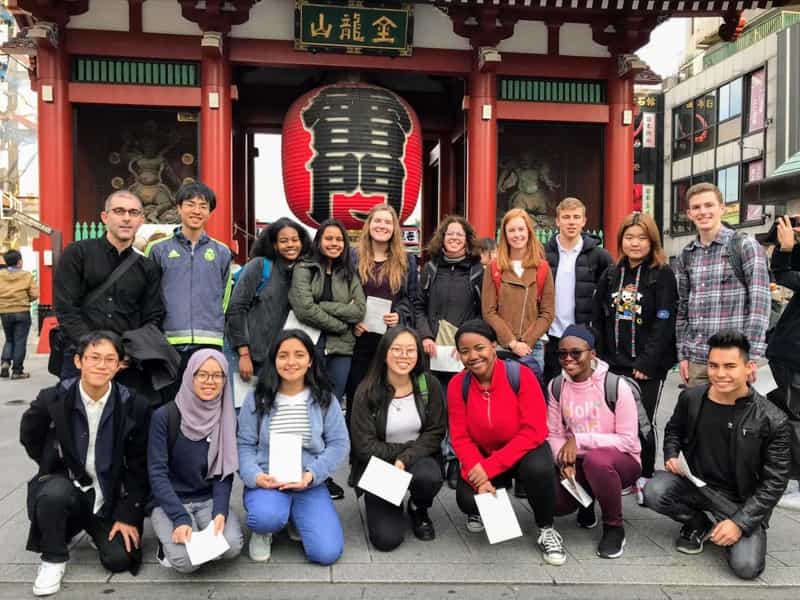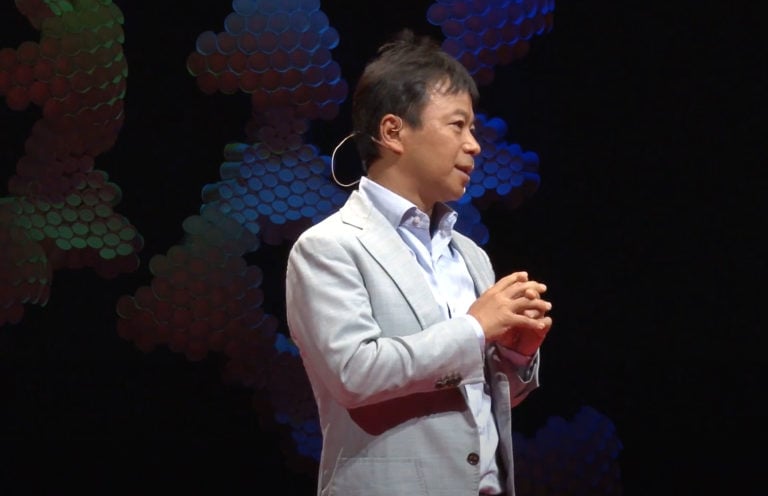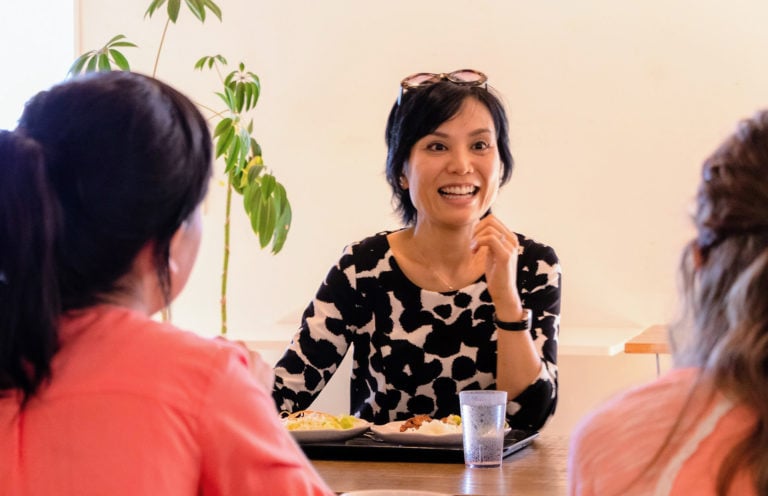Before we jump in, note that this is a two-part story so be sure to check out Part 1 here.
Previously, we looked at some of the highlights of the trip. In Part 2, we are going to delve a little deeper and look at what our student learned or where otherwise challenged, stretched or inspired by.
Kristine (Class of 2020, Latvia)
Being able to meet and speak to people from many other religions and also non-religious was very beneficial, interesting and moving. After having dinner (the best pizza in Tokyo), father Andrea encouraged us to start a discussion, in which we were able to share our beliefs and get to know each other on a much more personal level. Having an opportunity to learn about other religions has raised a lot of thoughts, questions and also answers for me, which is always a beautiful way to grow.
Even for non-religious people or people from different religions, there are so many things to take and embrace from these many different lifestyles – there is a lot of wisdom and beauty in all of them.
Leonard (Class of 2020, Germany)
For the first time in my life, really thought about my personal faith. Although I would consider myself non-religious, I noticed that I am still faithful to a certain extent and was able to define in what I believe and what are the values that most matters for me and maybe to a certain extent define my character and make me the person that I am.
Desel (Class of 2019, Bhutan)
The most interesting moment I found was a comment made by both Father Andrea and the gentleman that spoke with us at the mosque – when speaking about God, or Allah, they both referred to Him as a friend, as someone that truly empathizes with them. This was a striking moment because this was the first time I truly witnessed the parallelism of religion.

Hamidulla (Class of 2020, Afghanistan)
I learned that the Shinto is more about life and birth which makes it very appealing because most of the other religions which I know about are talking about after death. And Buddhism is mostly about afterlife and death. That creates a beautiful harmony between these two religions in Japan.
Ben (Class of 2019, USA)
It was interesting to learn how Japan’s minority religions, including Catholicism and Islam, are practiced in Tokyo, and what adaptations the religions went through in this pursuit.
Aaliyah (Class of 2020, USA)
One challenge was trying to balance the information I was learning with the information I previously knew. There were some things that we learned during the trip that I had never learned before especially regarding Christianity that challenged some of my previous notions. I found it difficult to evaluate the truth between what I accepted as true and what other people accepted as true. I also learned to appreciate the beauty of my own religion and others too.
Andrea (Class of 2019, El Salvador)
There are many people around the world that share the same beliefs as me, but that doesn’t mean that we have the same thoughts and opinions. A lesson I learned during the trip was that, what matters are our own experiences, because this will shape our own perspectives. We can’t judge or feel the same way as others, even if we share the same religion.
What is next for the Interfaith Programme?
The Interfaith Programme is currently planning a campus-based festival around the theme of “Silence”. We are also working towards adding a trip with a specific focus on Shintoism, which would also include attending the grand Sumo tournament in Tokyo.
If you are interested in joining or learning more about the Interfaith Programme, please reach out to Raffaela Corrias.




